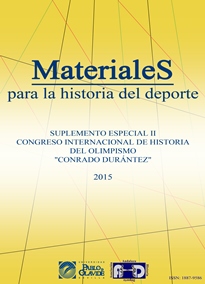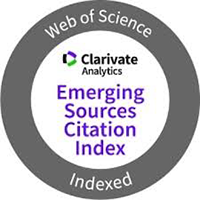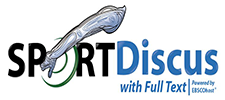Social impact of Olympic Studies Professorship Isle of Youth (Cuba)
Keywords:
Olympism, spiritual development, physical development.Abstract
The ancient Olympics has been a source of inspiration for many personalities of philosophy throughout life, as the Greeks were able to give the place an educational exercise in training your people looking for a balance between body and soul its practitioners, with a deep class, religious and military character. Also seen in physical activity a cultural vehicle, because during the celebration of the Olympic Games, which meant the ultimate expression of muscle activity ever seen in any civilization, the most famous philosophers, rhetoricians, orators, businessmen gathered and all kinds of people free of that society, turning the Games into a cultural and sports festival. This legacy has survived to this day, thanks to the work of Pierre de Fredy, the father of modern Olympism. In Cuba these ideas have become reality thanks to the work of the revolution, the Island of Youth is no stranger to this philosophy, which has Olympic Studies Professorship, in coordination with the Cuban Olympic Academy, so it is objective of this research to present the image and developments that have taken it in the pinero territory.
Downloads
References
Anónimo. “Adiós al Tritón”, 2005, [Citado el 05/01/2007], disponible en http://www.opciones.cubaweb.cu/en247/falcon.html
Comité Olímpico Internacional. “Olimpia Games. Sydney 2000”. [Citado el 05/01/2007], disponible en http://www.olimpic.org/uk/games/past/index_uk.asp?OLGT=1&OLGY=2000
Forbes, Irene; Luján, Ana María; Velasques, Juan. Famosos y desconocidos, cubanos en Juegos Olímpicos. La Habana: Editorial Pueblo y Educación, 2003, 308.
Grupo de Desarrollo de Juventud Rebelde. “Retornan a casa”, Juventud Rebelde. Diario de la Juventud Cubana, 2006. [Citado el 05/01/2007], disponible en http://www.juventudrebelde.cu/2003/enero-marzo/e
Maglisho, Ernes W. Nadar más rápido. California: Editorial State University, 1985, 224–126.
Mecias Cañizarez, Luis Ángel y Yoel García, Luis. “Otro pinero Olímpico”. Trabajo de diploma para optar por el título de licenciado en Cultura Física. Isla de la Juventud: ISCF Manuel Fajardo, 2005, 15.
ODEPA. “Competencias en panamericanos”, 2005, [Citado el 05/01/2007], disponible en http://www.inder.co.cu/indernet/competencias/panamericanos2003/finalistas.asp?competencias_65&deportes
Ramos Cabaña, M. y Tamayo, Michel Enrique. “Una estrella del Béisbol”. Trabajo de Diploma para optar por el título de Licenciado en Cultura Física. Isla de la Juventud: ISCF Manuel Fajardo, 2002, 54.
Downloads
Published
Issue
Section
License
Authors who submit to this journal agree to the following terms:
- Author(s) keep copyright and guarantee to the journal the right to be the first publication of the work as licensed under Creative Commons Attribution-Noncommercial-ShareAlike 4.0 International as initial publication in this journal.
- Author(s) can establish additional agreements for non-exclusive distribution of the version of the work published in the journal (for example, to an institutional archives or to publish it in a book), with an acknowledgment of its initial publication in this journal.
- It is allowed and authors are encouraged to disseminate their work electronically (e.g, in institutional open archives or on their own website) before and during the submission process, as it can lead to productive exchanges, as well as a citation earlier and more of published work (See the Effect of Open Access).












